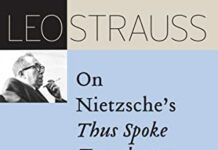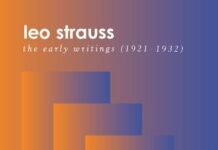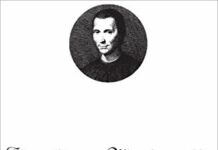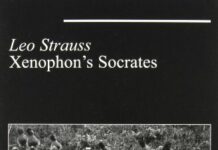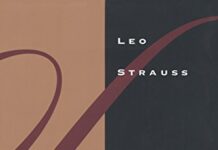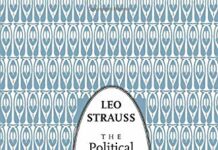
Ebook Info
- Published: 1989
- Number of pages: 368 pages
- Format: PDF
- File Size: 12.07 MB
- Authors: Leo Strauss
Description
A reissue of the 1975 edition, with four added essays, this collection offers a clear introduction to Strauss’ views regarding the nature of political philosophy, its chief contemporary antagonists, its classical forms, and its modern version. It gives the reader Strauss’ thoughts on what political philosophy has been and should be again.Selected for their general interest and their accessibility, the essays in the book provide a solid foundation for understanding Leo Strauss and his political philosophy.
User’s Reviews
Editorial Reviews: Book Description A reissue of the 1975 edition of Strauss’ views regarding the nature of political philosophy. From the Publisher A reissue of the 1975 edition, with four added essays, this collection offers a clear introduction to Strauss’ views regarding the nature of political philosophy, its chief contemporary antagonists, its classical forms, and its modern version. It gives the reader Strauss’ thoughts on what political philosophy has been and should be again. Selected for their general interest and their accessibility, the essays in the book provide a solid foundation for understanding Leo Strauss and his political philosophy. From the Back Cover A reissue of the 1975 edition, with four added essays, this collection offers a clear introduction to Strauss’ views regarding the nature of political philosophy, its chief contemporary antagonists, its classical forms, and its modern version. About the Author n/a Read more
Reviews from Amazon users which were colected at the time this book was published on the website:
⭐this would be a good choice. This edition of this book contains ten essays that introduce the reader to the main themes of the Straussian approach to political philosophy.My only caveat is for people who have already read some other books by Strauss or who plan to- most of what is contained in this book is in other collections of Strauss’ writing (e.g., the first two essays are also in What is Political Philosophy) or are excerpts from other books (e.g., the fourth essay is the first chapter of Natural Right and History). So if you are the sort of person who likes to read widely in an author, this may not be your best choice. The University of Chicago Press should publish a standard edition of Struass’ complete writings (hint, hint).What I plan to offer in this review is some background to the reading of Strauss. This will not read like a review in the sense that I will provide little summary of the essays. But everything I tell you in this review speaks to the writings in this book.Strauss’ work is best understood within the context of his own history. The essential fact to grasp in his biography is that he was Jewish and grew up in Germany in the early part of the twentieth century. It is impossible to overemphasize the shock to his being-in-the-world of the Germans electing Hitler. During his education, he was greatly influenced by his study of Nietzsche, Weber, Husserl and Heidegger. But his primary focus was on the “Jewish problem”. Strauss’ analysis led him to three basic alternatives: assimilation, political Zionism and an authentic return to the Jewish orthodox religious tradition of the Galut (readers who want to know more about this phase of Strauss’ life should go to Daniel Tanguey’s superb book, Leo Strauss: An Intellectual Biography). These investigations led him to Spinoza’s religious critique which became the subject of his first book. Strauss concluded that Spinoza (along with predecessors like Hobbes and critics to come like Locke) failed in his rationalist Enlightenment critique of revealed religion. Strauss concluded that the Enlightenment as a whole was based on the mistaken belief that the possibility of revelation had been shown impossible. According to Strauss, it had not. Equally, revealed religion was unable to meet the critique of rationalism on its own terms.This is one of the essential points that has to be understood in relation to Strauss’ philosophy. It is based on unresolvable tensions. The Straussian is unwilling to close off the possibility of revelation or of philosophy but strives to stay open to the way of life that is the investigation of that alternatives. Philosophy (the love of wisdom) is not the knowledge of wisdom (which we may never achieve but can come closer to achieving). Socrates is Strauss’ preeminent exemplar of the philosophical life.All of Strauss’ historical investigations led him to the conclusion that much of the history of philosophy was misunderstood and mistaught. Most of his work, of his own thought is expressed in his attempts to set the history of philosophy straight. (The volume, The History of Political Philosophy, that Strauss co-edited with Joseph Cropsey, brings together an extremely wide collection of essays by individual Straussians on most of the important political philosophers up to the early twentieth century.)One final little editorial note. It helps to know that when Strauss refers to radical historicism, he usually is talking about Heidegger. When he critiques the fact-value distinction, he is usually being critical of Weber. One of the weaknesses of Strauss’ discussions on these issues he that he never really updated his targets. He died in the early seventies. By then, positivism had been ruthlessly critiqued by the Frankfurt school as well as American philosophers like Goodman and Quine. The predominant thinker of the historicist (or hermeneutical) school by that time was Gadamer. Popper, Lakatos and Kuhn had already revolutionized the philosophy of science. So Strauss’ critiques sometimes seem a little outdated.And still this book is an engrossing read. Either you are sensitive to the issues that Strauss raises or you are not. I am an atheist but I fully recognize that my position is unprovable to someone who believes. To me, Strauss speaks loud and clear. I reject many of his core beliefs (e.g., that the highest end of humanity is its openess to the whole, that only a few can maintain the openness to the alternatives necessary to explore the nature of the whole and that therefore the philosopher is the highest exemplar of humanity). I believe in much of the Enlightenment project. But I find Strauss to be a fascinating and challenging thinker, one who cannot be written off as a kook let alone some sort of proto-Cheney.If you want to read one book to decide for yourself, you could not pick a better one.
⭐Enlighting
Keywords
Free Download An Introduction to Political Philosophy: Ten Essays (Culture of Jewish Modernity) in PDF format
An Introduction to Political Philosophy: Ten Essays (Culture of Jewish Modernity) PDF Free Download
Download An Introduction to Political Philosophy: Ten Essays (Culture of Jewish Modernity) 1989 PDF Free
An Introduction to Political Philosophy: Ten Essays (Culture of Jewish Modernity) 1989 PDF Free Download
Download An Introduction to Political Philosophy: Ten Essays (Culture of Jewish Modernity) PDF
Free Download Ebook An Introduction to Political Philosophy: Ten Essays (Culture of Jewish Modernity)
